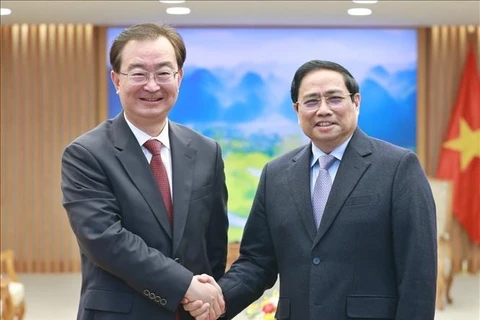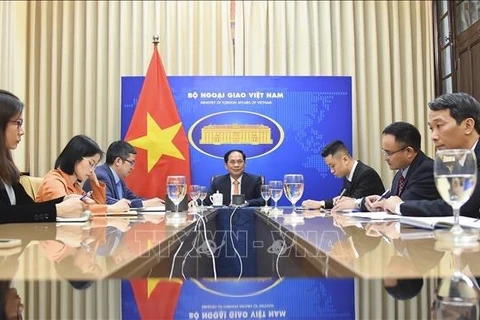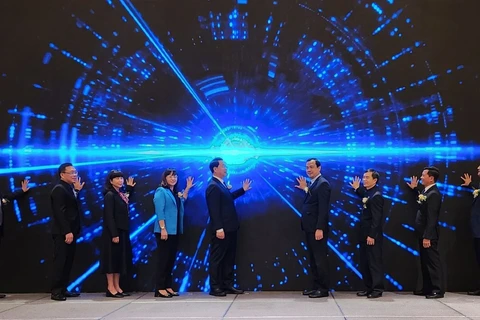Hanoi (VNA) – The 17th theoretical workshop between the Communist Party of Vietnam (CPV) and the Communist Party of China (CPC) was held in an online format on March 29, with focus on experience in social management innovation in the information age.
The Vietnamese delegation to the event was led by Nguyen Xuan Thang, Politburo member, Chairman of the Central Theory Council and President of the Ho Chi Minh National Academy of Politics (HCMA), while the Chinese side was headed by Li Shulei, Politburo member, Secretary of the Secretariat of the CPC Central Committee, and head of its Publicity Department.
Speaking at the workshop, Thang said that the CPV always attaches importance to and upholds social management in the information age, as with many new technology fields, the information age has a strong impact on all aspects of the social life, bringing great opportunities to promote the modernisation process in each country, and changing methods and ways of leading and managing the society based on new technologies.
In addition, the fourth Industrial Revolution and the boom in new technologies result in many new matters to the Party leadership in the management of social development, requiring the Party to innovate social management to adapt to drastic changes of the information age, he added.
Li stressed that innovation in social management is significant to the two Parties and countries in both theoretical and practical aspects, and in accordance with each country’s current situation.
The two officials stressed that social management in the information age must persistently put the people at the centre, while affirming the importance of strengthening theoretical exchanges between the two Parties in the new situation./.
The Vietnamese delegation to the event was led by Nguyen Xuan Thang, Politburo member, Chairman of the Central Theory Council and President of the Ho Chi Minh National Academy of Politics (HCMA), while the Chinese side was headed by Li Shulei, Politburo member, Secretary of the Secretariat of the CPC Central Committee, and head of its Publicity Department.
Speaking at the workshop, Thang said that the CPV always attaches importance to and upholds social management in the information age, as with many new technology fields, the information age has a strong impact on all aspects of the social life, bringing great opportunities to promote the modernisation process in each country, and changing methods and ways of leading and managing the society based on new technologies.
In addition, the fourth Industrial Revolution and the boom in new technologies result in many new matters to the Party leadership in the management of social development, requiring the Party to innovate social management to adapt to drastic changes of the information age, he added.
Li stressed that innovation in social management is significant to the two Parties and countries in both theoretical and practical aspects, and in accordance with each country’s current situation.
The two officials stressed that social management in the information age must persistently put the people at the centre, while affirming the importance of strengthening theoretical exchanges between the two Parties in the new situation./.
VNA























